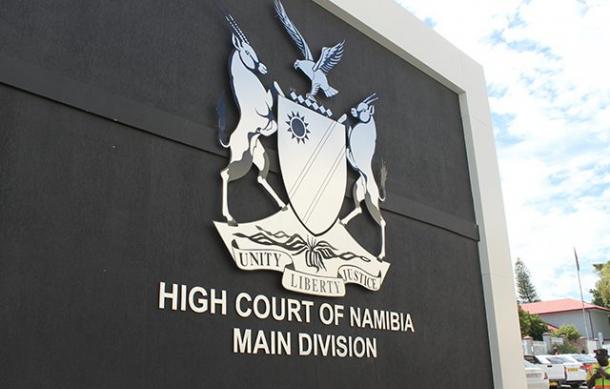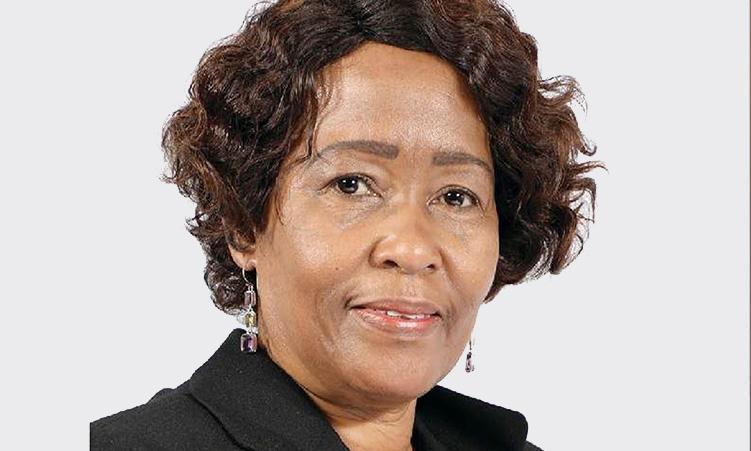THE ‘children of the liberation struggle’ have been making headlines on and off for over eight months now, and from the SMSes received by The Namibian, judgment, both derogatory and favourable, has been passed on the group.
The Namibian visited the Swapo Party head office in Katutura yesterday, where more than 200 of the ‘struggle children have set up camp, to get a little insight into their backgrounds.Ndapandula Kaongo and Petrus Nendongo offered to share their stories, and from their divergent tales, the hope is that the judgment passed will be better (positively or negatively) informed by the stories of their lives.Ndapandula was born in 1981 in Kwanza Sul, Angola, and returned to Namibia in 1989. Both her parents have passed away. Her father – whom she never knew – died during the liberation struggle, and her mother, who was also a soldier in the liberation struggle, died in 2000.Before her death in 2000, her mother covered the cost of Ndapandula’s schooling up to Grade 10 at the Okahandja Secondary School. Ndapandula failed Grade 10. ‘From then, I never went forward because there was no one to pay for my schooling,’ she says.She says she was meant to receive some benefits, but only got enough to pay off the family’s home, with the rest being siphoned off by other family members.Ndapandula, who now lives in Grootfontein, became the head of the household after her mother’s death, and started selling kapana (barbecued meat) and beer to support her daughter, who was four at the time, and her younger sister, aged five. She says this trade didn’t bring in much, but with the support of her neighbours, it was just enough to pay for food and the children’s school fees, ‘so they didn’t have to go through the same thing I went through.’Asked why she joined the protest of the ‘struggle children’, Ndapandula says: ‘I came here to struggle for a job.’Ndapandula joined the group when they were demonstrating at the Ministry of Veterans’ Affairs in September last year, went home to Grootfontein after the 80-day demonstration that ended with a High Court eviction order, and rejoined the group at the Swapo office last week.’I am struggling because I need something that can help me put bread on the table. I have to. The Government has been promising us and saying that we must just wait. They must do something! We are tired of their promises,’ she says.When The Namibian asks her whether she has been seeking employment in the meantime, Ndapandula says she has, and she would welcome any job: ‘selling in bars, cleaning in hospitals, anything!’’All we want is jobs. Nothing else! Just jobs so that we can help ourselves.’Ndapandula’s message to Government: ‘All I want to say is let Government please help us to get jobs. That is all I can hope [for]. I can say that because our parents died, we don’t have jobs, some of us have kids and we are no longer children as they have labelled us. Government is just making promises and we are waiting for these promises to be fulfilled.’Petrus Nendongo (22), born in Lubango in 1987, also returned from exile in 1989. He was two years old at the time.Though separated, both his parents are still alive, and have supported him at different points in his life.’I came back with my mother and stepfather in 1989, and both were unemployed from 1989 to 1999. In ’99, my mother got a job in the Police force, and my stepfather in the NDF.’ He says his biological father has been employed since 1990, but that he only came to know him in 2000.Between 1993 – when Petrus started and left Grade One because his parents couldn’t afford to pay for his schooling – and 2000, the young Petrus worked various small jobs, such as taking care of animals on the farm, carrying luggage for travellers between the Namibian and Angolan border and living on the streets.In 2000, his mother found him on the streets of Oshikango, and told him to go to his father, who sent him to school at Ekaha Primary School in Onayena for Grades 3 to 7, Augustineum Secondary School in Windhoek for Grades 8 and 9, Onayena Secondary for Grade 10, St Joseph’s at Döbra for Grade 11, and after a year out of school due to financial constraints, to Jacob Marengo for Grade 12 last year.Petrus joined the demonstration at the Ministry of Veterans’ Affairs immediately after completing his Grade 12 exams, which he failed. He was with the group that was relocated to the Swapo farm outside Windhoek to escape arrest for flouting the eviction order.Asked whether he has tried to find a job or further educational or training opportunities on his own, Petrus, who says ‘self-sufficiency’ is the main reason he joined the demonstration, responds: ‘Not at all, because fortunately the demonstration was taking place as I was writing exams. I wanted to get that same assistance, and so I decided to also join.’Petrus says he wants ‘a nice job that I can use to survive, and that can give me the money to generate additional capital. I’m young, creative, and with such a job I can create a better life for myself like others that are living large.’He adds: ‘I just want to tell the Government that it is very large, with many different departments. Why not squeeze us into those departments that are lacking employees? Maybe we can make a difference in terms of development. For them, this shouldn’t be a big issue unless they are just ignoring us, or are ignorant.’And when The Namibian wonders about other Namibian youth, orphans and vulnerable children that continue to struggle to secure a job in an environment where close to 40 per cent of the population is unemployed, Petrus says: ‘Their time will come! This is for veterans’ kids and they shouldn’t feel that they are being left behind.’nangula@namibian.com.na
Stay informed with The Namibian – your source for credible journalism. Get in-depth reporting and opinions for
only N$85 a month. Invest in journalism, invest in democracy –
Subscribe Now!











